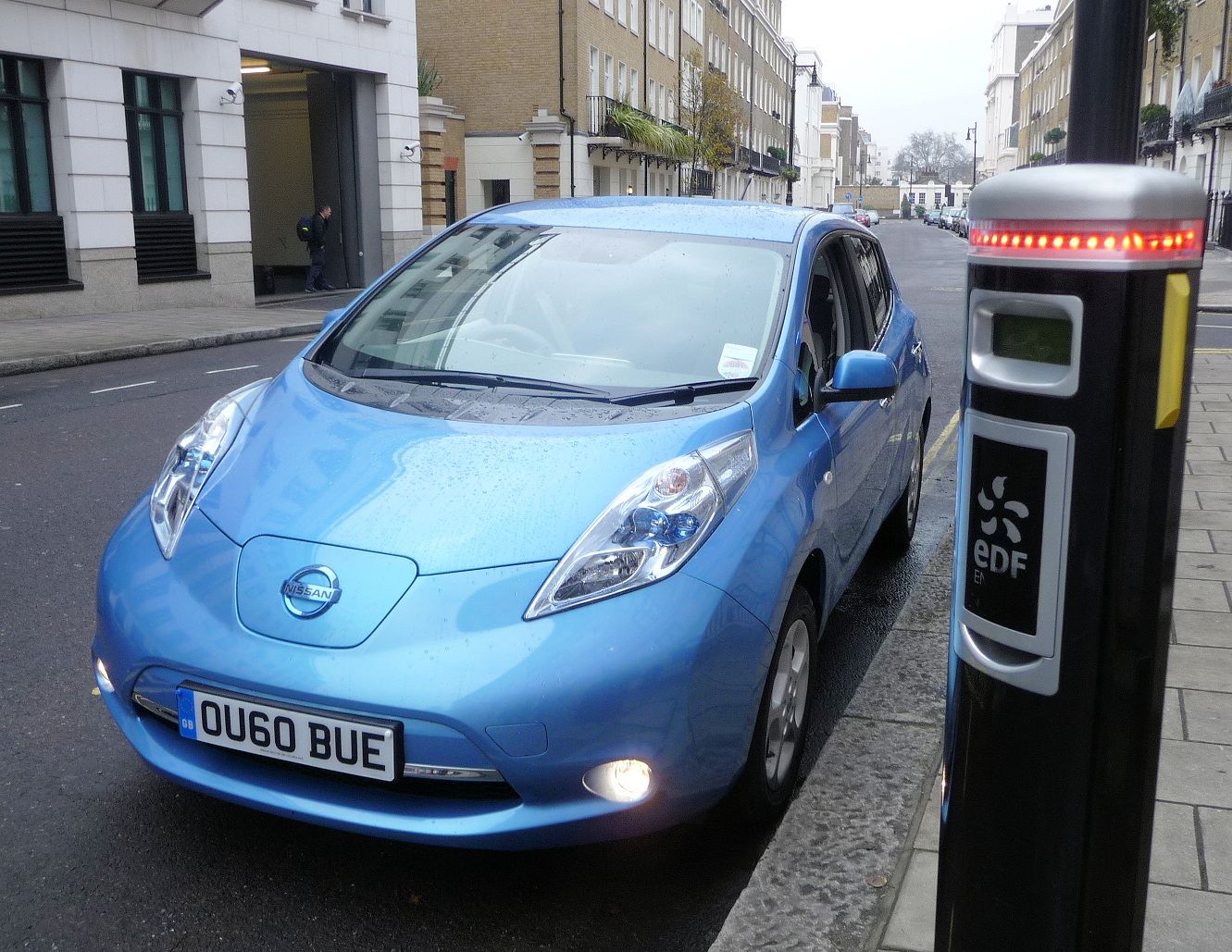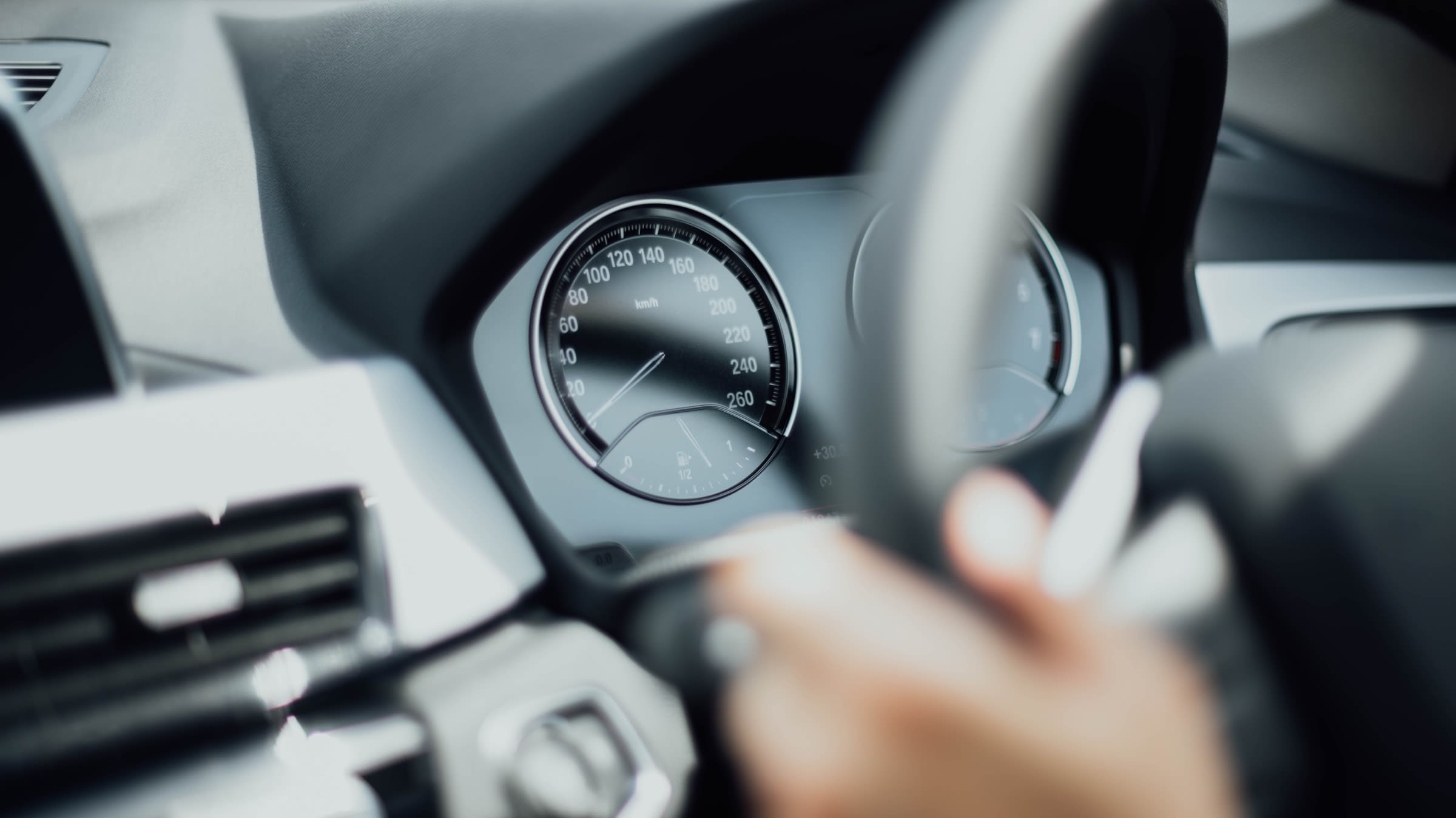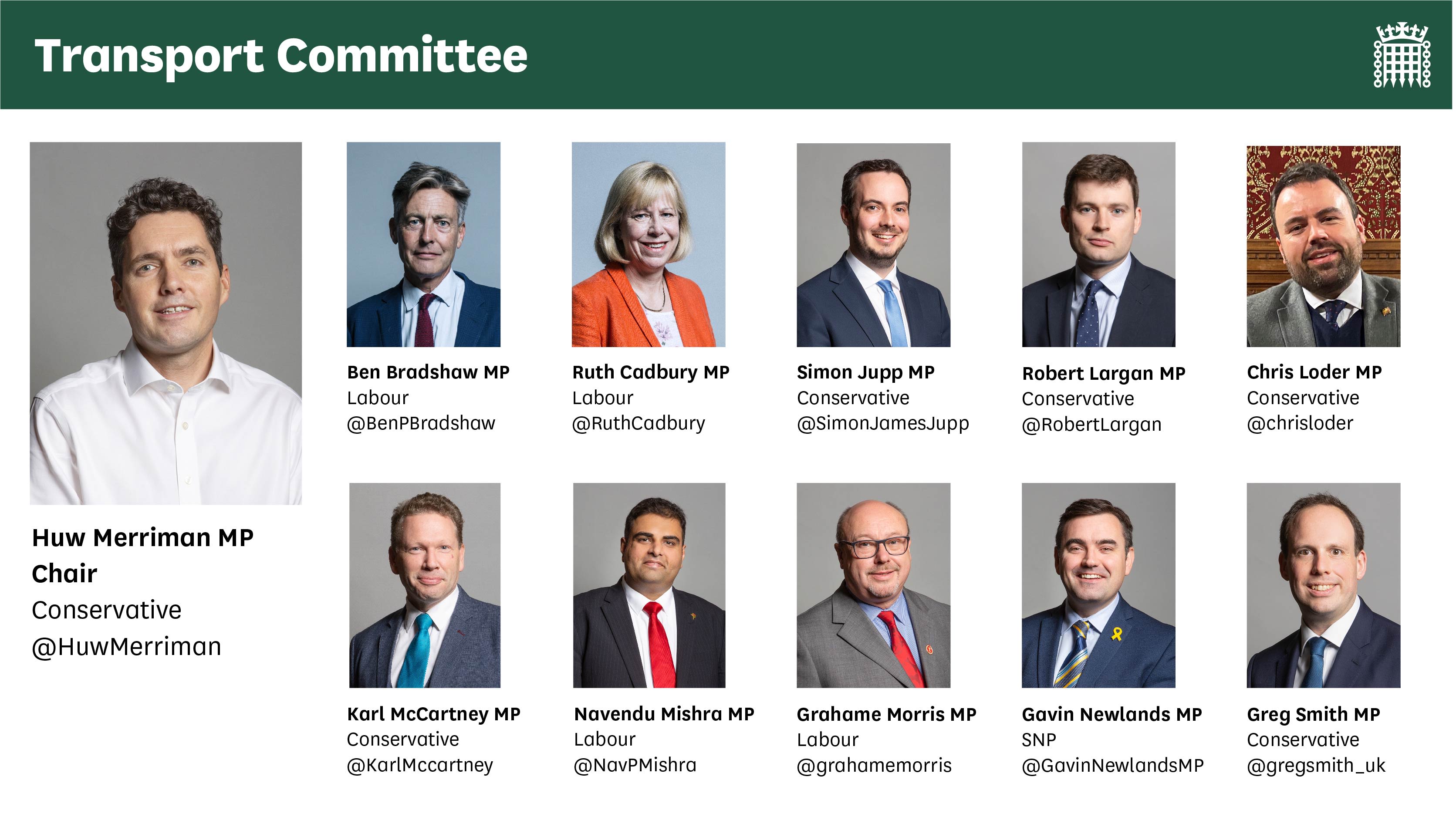Is there a case for road pricing in the UK?
Could it be the system to help fund our roads and reduce emissions when fuel taxes decline?

The way we use roads will be changing
The Government has committed to end the sale of new petrol and diesel cars and vans by 2030. That step is welcome and necessary, but it creates new challenges.
£35 billion could be lost by the Treasury through the rise in sales of electric cars and zero emission vehicles (ZEVs).
We wanted to examine if road pricing is a viable solution to replace funds which will be lost from fuel and vehicle duty taxes and to help manage congestion.
How do we fund our roads and reduce emissions?
What is road pricing and how is it currently used?

What is road pricing?
Road pricing is a charge paid for using roads on a 'per-use' basis. In the UK, road charges have generally been used for two reasons: to tackle congestion and to improve air quality by charging vehicles based on their emissions levels.
Current forms of road pricing
Limited forms of local road pricing schemes already exist in the UK:
- Toll roads like the M6 toll road
- Bridges and crossings such as the Clifton Suspension Bridge and the Mersey Crossing
- Heavy Goods Vehicles levy for non-UK hauliers
- The Congestion charge and Ultra Low Emission Zone (ULEZ) in London.
Policy aims of road pricing initiatives
The aims of any road pricing would be twofold: financial and environmental. The issue will be how the Government can deliver this in a way that works for everyone. We note that no comprehensive national scheme currently exists anywhere in the world.
If ZEV drivers become accustomed to low-tax motoring, it may become socially and politically difficult for the Exchequer to levy higher rates of motoring taxation from them in future.
If driving becomes cheaper, it will likely lead to more driving and therefore more congestion. This will also affect bus users' journeys and of course, increase pollution.
A road pricing system would support other Government policy priorities, such as encouraging active travel, decarbonising transport and increasing transport infrastructure investment.
Could road pricing work in the UK?

Below are a few key areas that need consideration if any form of road pricing were to be fully implemented in England.
National versus local pricing
Witnesses to our inquiry were generally in favour of a nationally run road pricing system, rather than implementing a range of local schemes. They cited cost, user-friendliness and clear governance as key benefits of a national scheme.
The devolution of road pricing to local areas could lead to the introduction of clunky, unconnected schemes. Fuel duty and vehicle excise duty are Treasury taxes that require a national-level replacement rather than a patchwork of incongruous local schemes.
Technology for pricing
The technology required to facilitate an efficient system of road pricing is currently available. Professor Phil Goodwin, Senior Fellow at the Foundation for Integrated Transport, explained to us that: "anything that, politically, is realistic to design […] the technology can deliver already".
For example, onboard vehicle telematic technology currently permits insurers to charge for the number of miles travelled by a motorist. John Siraut, Director of Economics for Jacobs, stated to us that "you could have a single unit in your vehicle for both insurance and road user charging payment systems."
Another technological system would be dynamic pricing, where charges vary dynamically based on the road being used and the time of travel. Telematics inside vehicles could allow real-time data to be recorded and transferred to a pricing mechanism.
Data protection
Several witnesses stressed the importance of a strong legal framework to protect drivers' privacy.
"... It is […] imperative to not just engineer a solution that cannot be used to track individuals, but also to educate the public specifically on why it cannot be mis-used, and how introducing the system will specifically benefit them as citizens."
The successful implementation of a national, technology-based road pricing scheme is contingent on the Government explaining how data capture will work in practice.
It must ensure that data management is subject to rigorous governance and oversight as well as reassure the public that their privacy will be protected.
Departmental responsibility
The Treasury funds the Department for Transport (DfT) to maintain and develop the road network. The DfT depends on the Treasury to impose motoring taxes to regulate demand for motoring and to manage congestion.
However DfT policy also includes promoting the benefits and increasing take-up of electric vehicles. This will bring reduced funds from fuel duty and vehicle excise duty and could have serious implications for the maintenance and development of the road network.
There is a danger that the DfT and Treasury's respective responsibilities might lead them to work towards differing and competing policy outcomes. The interconnected challenges associated with motoring taxation can only be overcome by functional cross-departmental, joined-up government.
Devolution
The UK Government develops the policy and provides the bulk of the funding for local transport in England. In Scotland, Wales and Northern Ireland, those policies and funding are delivered by the relevant devolved Administration.
Fuel duty and vehicle excise duty, the principal motoring taxes, are national taxes levied by the Treasury.
Bearing in mind the partial devolution of transport policy, consultation and agreement between the UK Government and the devolved Administrations will be key to developing and implementing an alternative road charging mechanism.
A way forward is needed
The greatest barriers to introducing road pricing are political. Introducing new taxes is often unpopular so the political risk has always been seen as too high.
However, fuel duty and vehicle excise duty are increasingly unfit for purpose. The consequences for both public finances and congestion management are too severe for inaction. To deliver a fair system of motoring taxation, politicians must find a way to take the politics out of road pricing.
Four recommendations
1. The Government must start an honest conversation with the public on how to maintain funding for roads and other essential public services once the significant revenue from vehicle excise duty and fuel duty declines.
2. The Government must ensure that any new motoring taxes entirely replace fuel duty and vehicle excise duty, rather than being added alongside those taxes, so that motorists pay the same or less than they do currently.
3. Telematic technology could deliver a replacement road pricing mechanism that sets the cost of motoring based on the duration and time of the journey and vehicle type and size. The role that this technology could play in a road pricing system must be examined.
4. The Department for Transport and the Treasury must jointly establish an arm's-length body tasked with recommending an alternative road charging mechanism to replace fuel duty and vehicle excise duty by the end of 2022.
If motoring taxation is linked to road usage, the Committee has not seen a viable alternative to a road pricing system based on telematics.

What happens now?

We have made our recommendations to the Government.
The Government now has two months to respond to our report.
Our report, 'Road pricing' was published on 4 February 2022.
Detailed information from our inquiry can be found on our website.
If you’re interested in our work, you can find out more on the House of Commons Transport Committee website. You can also follow our work on Twitter.
The Transport Committee is nominated by the House of Commons to scrutinise the work of the Department for Transport.
Before you go...

Cover image credit: FOCA Stock via StockSnap

